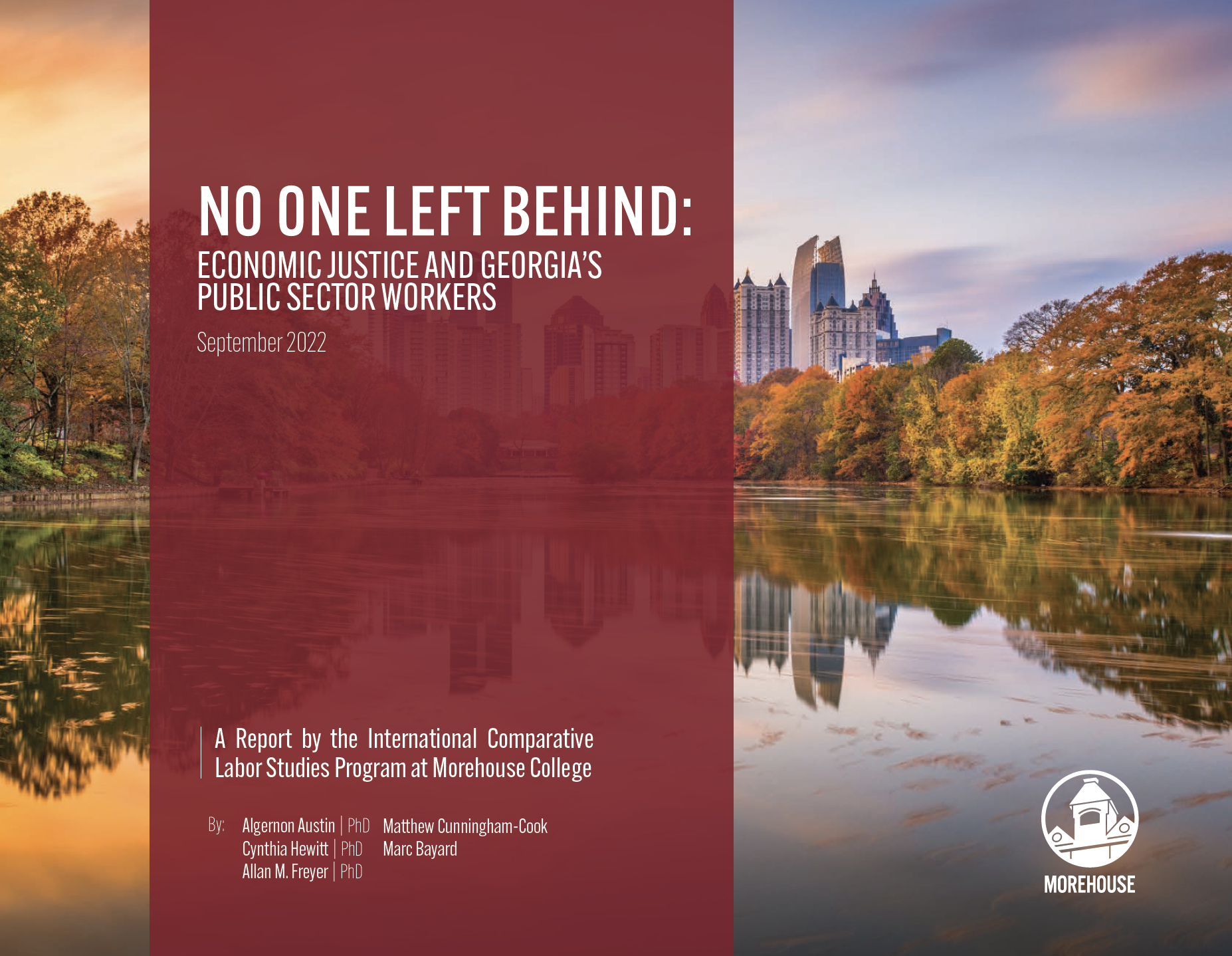Back To Blog
Morehouse College Report Finds Women, Black, and Rural Workers Being Left Behind in COVID Recovery
September 20, 2022Written by: Morehouse College
Today, the International Comparative Labor Studies Program at Morehouse College released “No One Left Behind: Economic Justice and Georgia’s Public Sector Workers,” a labor report diving into the COVID job recovery in Georgia.
With nationwide unemployment at 3.7% and Georgia unemployment at 3.1%, the numbers show a pre-pandemic job market. The new report from Morehouse College, however, finds that although jobs have recovered, women, Black and rural workers have not returned to the workforce.
Georgia has cut budgets and disinvested in the public sector eliminating jobs and preventing a full recovery from the 2008 Great Recession, let alone the COVID-19 pandemic.
Now, with 71% of Americans supporting labor unions, a record high since 1965, Morehouse’s report finds that the key to bringing minority workers back into the workforce is collective bargaining in the public sector. Currently banned in Georgia for most public sector workers, collective bargaining will create good paying public sector jobs for all workers, correcting the private sector COVID recovery that has left many workers behind.
"The No One Left Behind: Economic Justice and Georgia’s Public Sector Workers report underscores the urgency in protecting the essential workers," said Dr. Cynthia Hewitt, director of the International Comparative Labor Studies Program at Morehouse College. "Ask your state representative whether she or he will legislate to protect collective bargaining rights of all public workers. Georgia’s families and communities depend upon this.”
Key findings from the report include:
- Georgia’s private sector recovery is leaving behind too many people, especially workers who are Black, women, and those living in rural Georgia.
- Collective bargaining is banned for most public sector workers in Georgia--a major reason why the Peach State has the fifth lowest union membership in the country for public sector workers.
- Collective bargaining in the public sector creates jobs for everyone, including white, black, and brown workers, especially those in the working class.
- Frequent state and local budget cuts and long-term disinvestment in the public sector have eliminated many of the jobs that pay union premium wages. Overall, public sector employment is down 4.3 percent since the start of the pandemic in March 2020 and down almost 12 percent since the start of the Great Recession--meaning that more than one in every ten public sector jobs has vanished over the past decade.
- These public sector job losses hit workers without college degrees the hardest--the number of working-class jobs in state and local government dramatically declined since the start of the Great Recession, from about 151,000 in December 2007 to about 105,000 in May 2022.
- Public sector collective bargaining benefits local communities.
- Collective bargaining empowers women working in the public sector workforce, including protecting women from discrimination and harassment as well as paying better wages.
- A unionized public sector plays a key role in removing barriers to an equal recovery for all Georgians. It is critically important for rebuilding the state’s economy as the pandemic wanes. In two sectors in particular, unions and organized public workers have a special role to play: childcare and transportation.
The report recommends that Georgia policymakers take the following actions to strengthen collective bargaining for state and local government workers:
- Expand collective bargaining rights to all 680,000 public employees in Georgia.
- Enact merit-based staffing for public employees.
- Create an OSHA State plan to extend health and safety protections to state and local public workers.
- Enact higher labor standards for state and local government contractors.

aims to close the gap conceptually, organizationally, and pedagogically between mental and manual labor for the cultivation and proper remuneration of all work. In the words of Morehouse Alumnus Rev. Dr. Martin Luther, “all labor has dignity.”
Tag(s):
Elections
,
Public Sector
,
Worker Rights
,
Labor Shortage
,
Employee Unions
,
Inside Morehouse